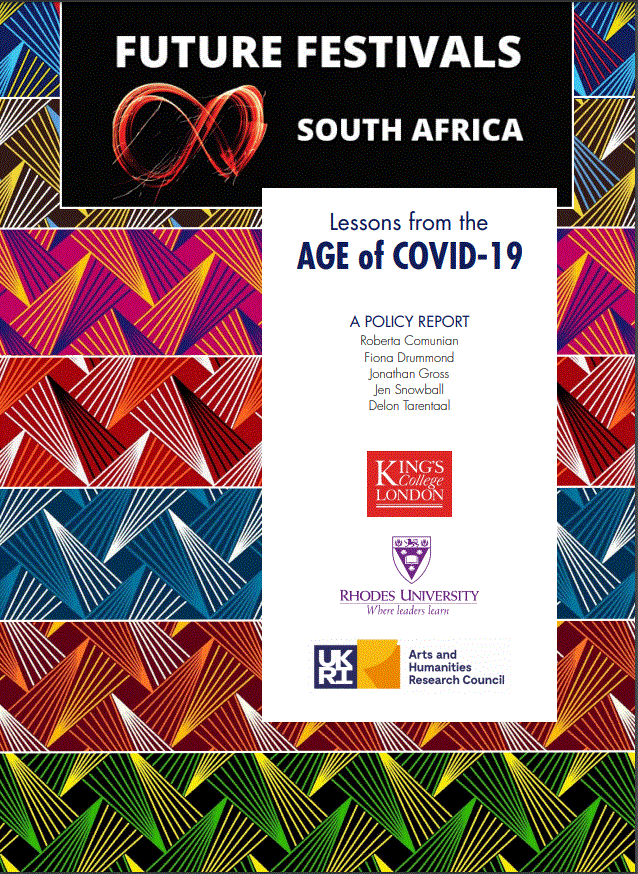
The Future Festivals South Africa final policy report was launched on 9 March as part of Africa Week at King’s College London. The report offers an overview of the 18-month research project funded by an Arts and Humanities Research Council (AHRC) grant.
The project, a collaboration between King’s College London, Rhodes University and seven festival partners, aimed to investigate the impact of COVID-19 on cultural festivals in South Africa and to build a new knowledge base and network to enable them to build resilience in these challenging times. Working with various festival partners, the findings tracked some of the innovative modes of delivery and online engagement used by festival managers to continue providing work for creatives, reaching audiences, and fulfilling sponsorship obligations during the pandemic.
Though these were challenging times for festivals in South Africa, with almost half of those occurring in 2019 cancelling in 2020, there have also been opportunities for some festivals to innovate through the pandemic. There are four key findings of the project:
- Festivals have been heavily affected by COVID-19 but have also evolved because of it. They have taken new roles, knowledge and leadership in response to COVID-19.
- Festivals have acted as a cornerstone of the creative economy during COVID-19, supporting artists and communities.
- Festivals have experimented and tested new online means of delivery and engagement but have not found a defined business model associated with it.
- While moving online, festivals remain anchored in specific localities and loyal to audiences and place-based communities.
There are also a number of policy implications that stem from the impacts of COVID-19 on the festival landscape as well as the evolution that has occurred in the sector as a response to the pandemic.
Public sector funders may need to shift their focus from the old view, where their responsibility ended with making the grant and receiving the close-out report, to a much more collaborative, networked approach.
Providing platforms for networking, training, and mentoring is likely to become increasingly important and valuable in the ongoing COVID recovery period. Public and private sector funders could consider facilitating such events alongside the direct funding provided to individual organisers.
Supporting festivals looking for ways to continue reaching offline creatives and audiences should also be a focus of public funding.
Festivals need to be recognised as key enablers of the development of creative economies. Policy needs to recognise their strategic role – and to provide support not only for festivals to deliver their own artistic programmes, but also to be able to grow, network and innovate for the benefit of the overall sector.
The report is available for download at the following link: https://kclpure.kcl.ac.uk/portal/files/199976118/Final_Future_Festivals_South_Africa_Policy_Report_3_March_.pdf
